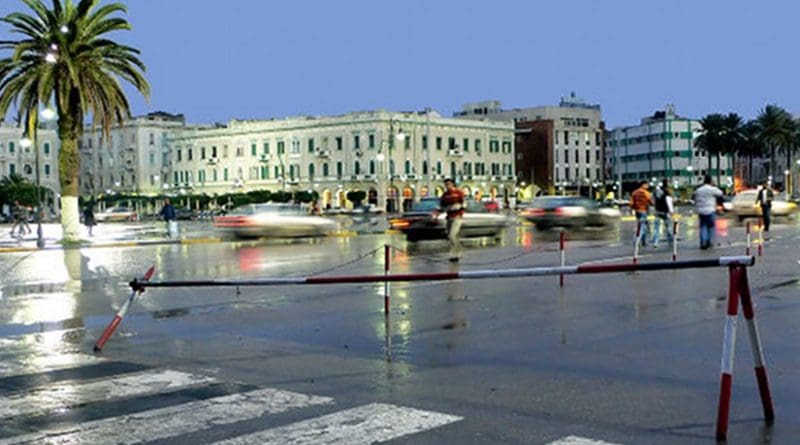Why Is Egypt Planning To Reopen Its Embassy In Libya Now? – OpEd
Egypt is planning to open its embassy in Libya’s capital for the first time in six years, to mark a shift to a more conciliatory approach to western Libya-based factions. According to reports, the visiting Egyptian delegation discussed the reopening in Tripoli, coinciding with a new interim government set to be formed in the latest UN-brokered effort to unite rival camps in east and west Libya.
During its visit to Tripoli, the Egyptian delegation met the foreign and interior ministers of the outgoing government, which is aligned with military factions that fought Haftar, according to posts from the Libyan ministries. During the visit, they discussed logistical arrangements for reestablishing Egypt’s diplomatic presence in the coming period and establishing a consulate in the eastern city of Benghazi. This is the first step towards enhanced political, economic and security cooperation with authorities in Tripoli.
On the other hand, Libya is establishing a new interim government this aims to hold national elections. The country has had a unified leadership in four years, and the new government will face severe challenges winning recognition both within the country and among some external actors.
The Security Council called upon the newly elected interim executive authority in Libya to swiftly form an inclusive Government and make the necessary preparations for presidential and parliamentary elections later this year.
The Libyan dialogue forum elected Abdul Hamid Dbeibah as prime minister and Mohamed al-Manfi from the east as the head of a three-strong presidential council. Musa al-Koni, as the deputy representing the country’s south, and Abdullah al-Lafi complete the council. On one ticket, is eastern-based parliament head Aguila Saleh, a candidate to lead the presidency council, and western-based Interior Minister Fathi Bashagha.
Moreover, also seeking to be prime minister are Osama Juweili, a western military commander, and Abdulmajid Seif al-Nasr, from the south.
Candidates have agreed not to run for office in the national elections planned for Dec. 24 and to step down from the posts they hold if they win office through the U.N. process.
This cooperation is part of a U.N. and Egypt plan that envisages national elections at the end of the year as a political solution to Libya’s decade of chaos.
In addition, Turkish troops stationed in Libya will remain as long as a bilateral military agreement between Ankara and Tripoli is active and Libya’s government requests it. Moreover, Erdogan could discuss withdrawing Turkey’s troops, who Ankara says are providing military training to Libya’s Government of National Accord (GNA), if other foreign powers are withdrawn first. This message is for Egypt, because Turkish companies would also play an active role in the efforts to rebuild war-torn Libya.
Egypt has been one of the most prominent backers of eastern-based military commander Khalifa Haftar, whose Libyan National Army waged a campaign to take control of Tripoli. As such, Egypt wants to secure its border with Libya. Along with the United Arab Emirates, it also supported the stated goal of opposing Islamist-leaning groups and Muslim Brotherhood influence in Libya.
Egypt supports Aguila Saleh as head of the presidency council and Fathi Bashagha as prime minister, who was the frontrunner and had the backing of key external players. On the other hand, Turkey is the dominant external player in the west and they support Bashagha. Broadly, Egypt, the United Arab Emirates and Russia have the most sway in the east of the country.
This is the last chance for the Libyan people and political leaders to end the conflict and division in the country. However, the conflict in Libya is still represented by the goals of both Turkey and Egypt — with Egypt wanting to plant its forces and Turkey a return on its investment. As such, all parties now seek to control Libya to benefit from oil, gas and land.

